Introductory Course (Elective) - Understanding the Work of the Legal Profession - [Subjects offered by the School of Law (offered in Japanese)]
Ruka Kaneko 4th year student School of Law
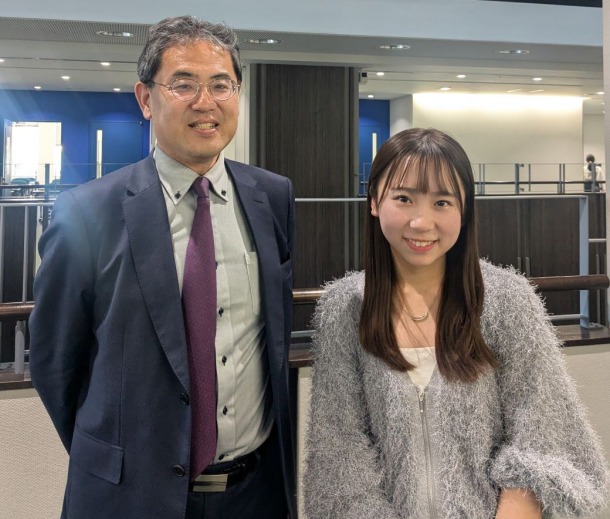
At Building No. 8 on Waseda Campus. Professor Shiraishi (left) and Kaneko (right)
Do you know the phrase "legal profession"? The dictionary defines it as "a person engaged in legal practice. In particular, it refers to judges, prosecutors, and lawyers" (Kojien, 7th edition, edited by Shinmura Izuru, Iwanami Shoten). "Oh, so it means lawyers? It has nothing to do with me. I'm not in the School of Law." "Law seems stiff and difficult. I'm not interested." there may be many people who think like this. However, "legal profession" does not only mean dealing with law. The world of the legal profession goes beyond the academic field of law and is related to various fields. In the class "Understanding the Work of Legal Professions" (open course) taught by Professor Dai Shiraishi (Faculty of Law), you can learn about the world of legal professionals who are active in many different fields.
In the first lecture, Professor Shiraishi will explain what the legal profession is and what steps one must take to become a part of it. This will be followed by an omnibus-style lecture on the work of people in the legal profession by practitioners who are actually licensed legal professionals. The lecturers come from a truly diverse range of professions. They include judges, prosecutors, lawyers, and civil servants. And when we say lawyers, they range from lawyers who specialize in civil cases such as divorce issues to criminal lawyers who defend suspects in crimes.
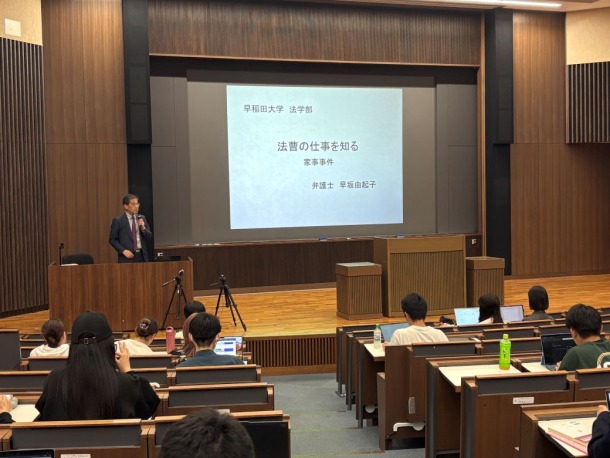
Professor Shiraishi giving an explanation before the lecture by a legal professional
For example, in a lecture by a lawyer who handles criminal cases, you can learn why they defend suspects, and the role lawyers play in the unequal power relationship between the state and the individual. On the other hand, in a lecture by a prosecutor, you can experience the practical aspects of how a prosecutor faces and resolves crimes. In this way, the appeal of this course is that you can hear how people approach things from opposing positions in practice and learn different perspectives on the same problem.
You can also hear from lawyers who are public servants or legal professionals working for companies. One person who actually worked as a public servant at the Consumer Affairs Agency used their own lawyer's qualifications to investigate consumer accidents (※) from an independent standpoint, striving to clarify accidents and prevent them from recurring.
*An accident in which unsafe products or services cause harm to consumers in their daily lives.
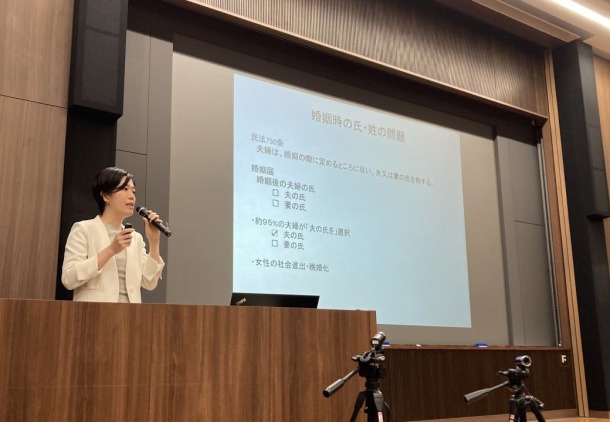
A lecture by a lawyer specializing in domestic relations cases. You can hear realistic talks on current topics such as the issue of optional separate surnames for married couples, and about what the world of criminal investigations and trials that we see on TV is really like.
In an increasingly complex society, where problems pile up and knowledge in a limited field alone is insufficient, the work of the legal profession is able to solve these problems by applying a wide range of knowledge and provide support to people, making it a truly interdisciplinary profession. Furthermore, the work of legal professionals has aspects that are familiar to our daily lives. Even if you are not in the School of Law, why not take this class to get a glimpse into the diverse world of the legal profession?


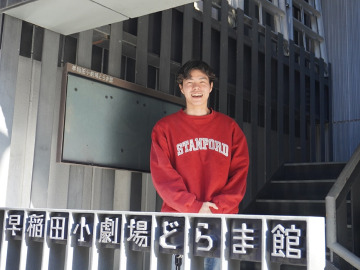
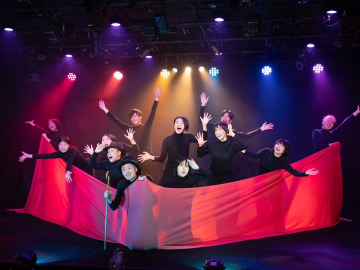


![[Save version] Map of the four main campuses](https://www.waseda.jp/inst/weekly/assets/uploads/2025/09/17cb2975123fc5103172ef60bd98608d-610x458.jpg)

